Slack expands AI features with enterprise search, translation, and smart summaries
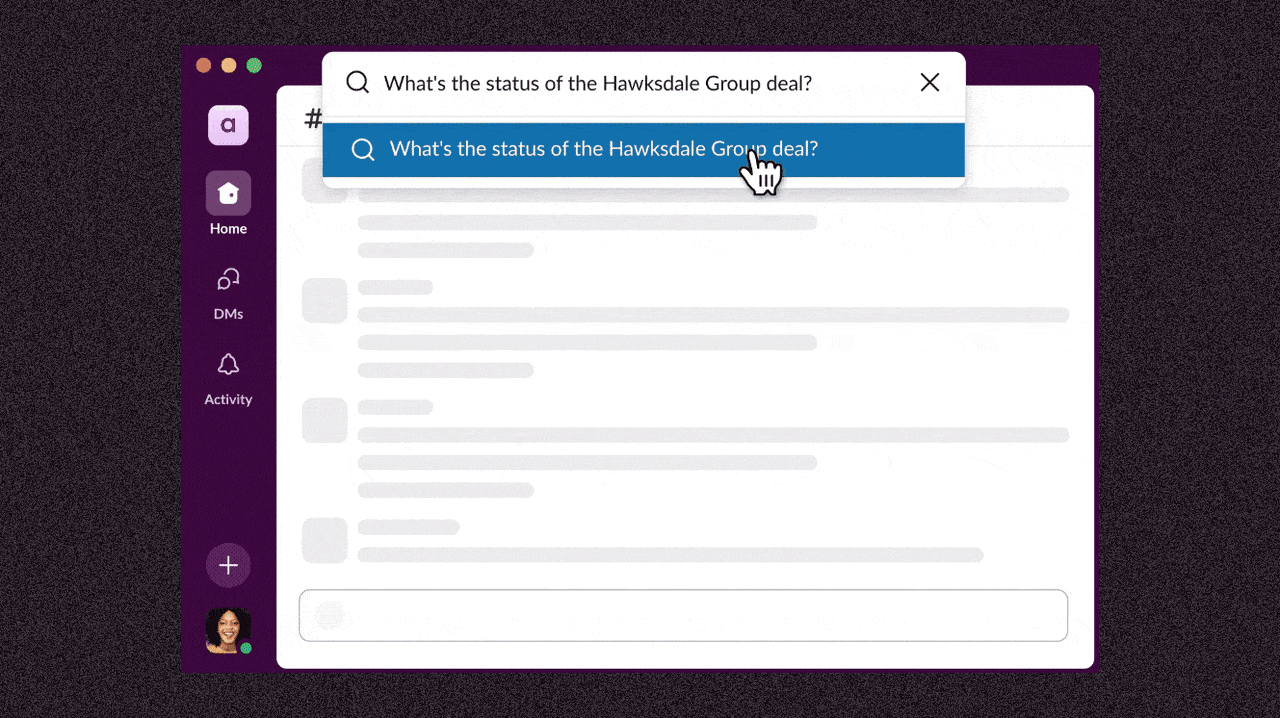
A new set of AI tools is coming to Slack, designed to help users quickly find and utilize information from their chats—and even from data stored in connected business apps.
“It serves as the hub, or your work operating system, to be able to get work done, to make things more productive,” says Slack CEO Denise Dresser.
On July 17, Slack announced the general availability of an enterprise search feature. Users on Enterprise+ plans will now be able to search information from integrated apps like Google Drive, Box, Microsoft Teams, and corporate parent Salesforce’s systems directly from within the Slack search box.
“Slack is a very natural place to look for things and to initiate that search, because a lot of what prompts people to go look for something is something that happens in Slack—either a notification or a question from somebody in a message, or something you see in a channel that you don’t quite understand,” says Rob Seaman, Slack’s chief product officer.
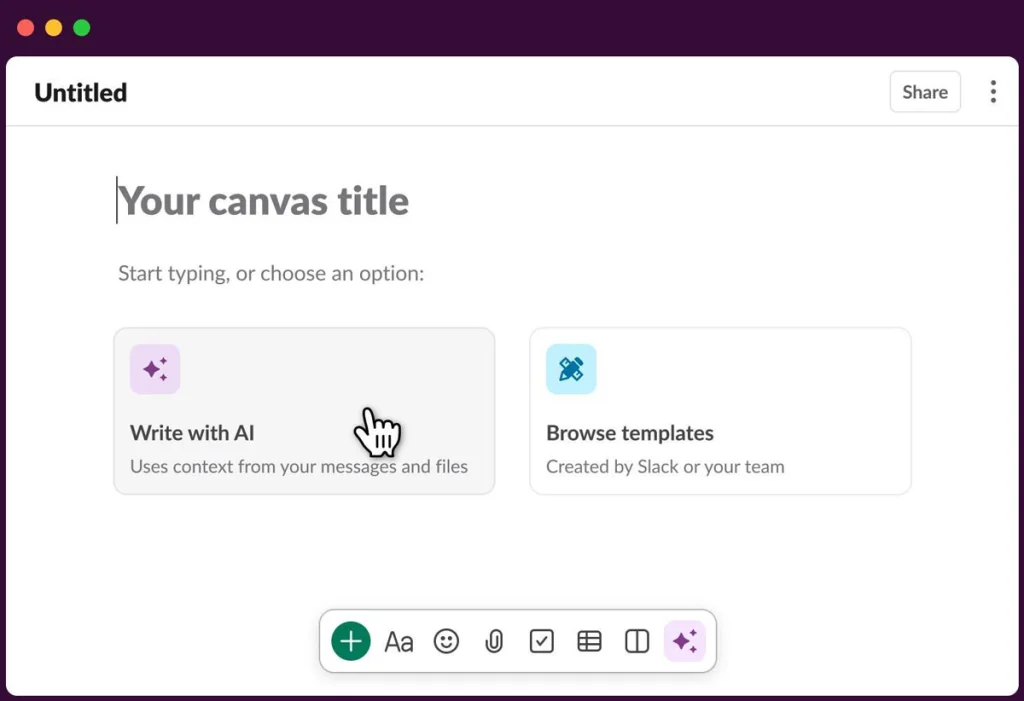
Even within those conversations, users will soon be able to ask AI for help understanding specific messages, such as defining corporate terminology and acronyms or putting messages into the context of a broader discussion. AI will also highlight action items for individual users, helping those with limited time to focus on top priorities.
A language translation feature has also entered general availability for Business+ and higher-tier plans, enabling multilingual teams to ask AI to translate messages into their preferred languages. Users with Pro and higher-level plans can use AI to generate meeting notes from Slack Huddle conversations.
Soon, Slack’s AI will even be able to create user profiles, offering insights into team members’ roles and recent contributions—especially useful in large organizations.
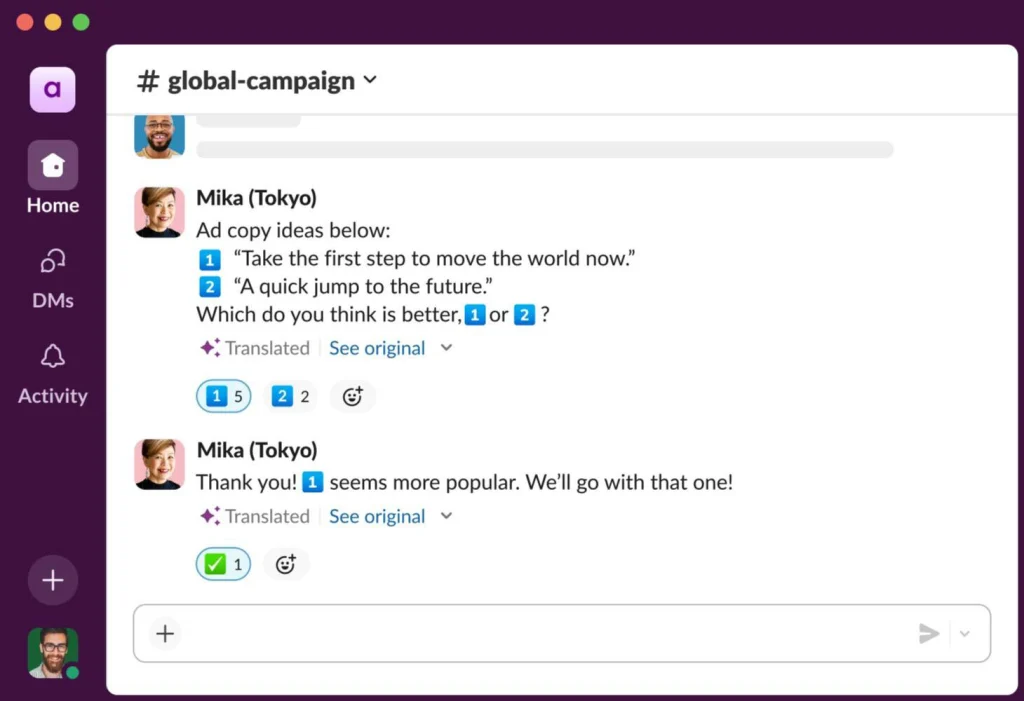
“We do a lot here to make sure it feels right and doesn’t feel creepy,” Seaman says. “We have it be positive. We have it only access what’s available publicly.”
Slack Canvas, the platform’s tool for creating shared documents and collaborative notebooks, will also benefit from AI. The assistant will leverage Slack’s conversational data to help with tasks like drafting onboarding documents or turning brainstorming sessions into project briefs.
These updates are part of Slack’s broader effort to help users cut through the information overload of modern office life, and to solidify the company’s position as the go-to hub for finding information and AI-powered assistance. Dresser says Slack has a head start, given how many people already know and enjoy using it to connect and collaborate.
“The more that people love being there, and they can find what they need to do their job, the more they’re going to want to stay in Slack,” Dresser says.
For many teams, Slack already acts as a central repository of vital information, containing records of key conversations and company updates—even before integrating external data sources. As Dresser points out, the Slack name was originally said to stand for “searchable log of all conversation and knowledge,” and AI may increasingly help users take action based on that information, or quickly grasp what’s already been discussed.
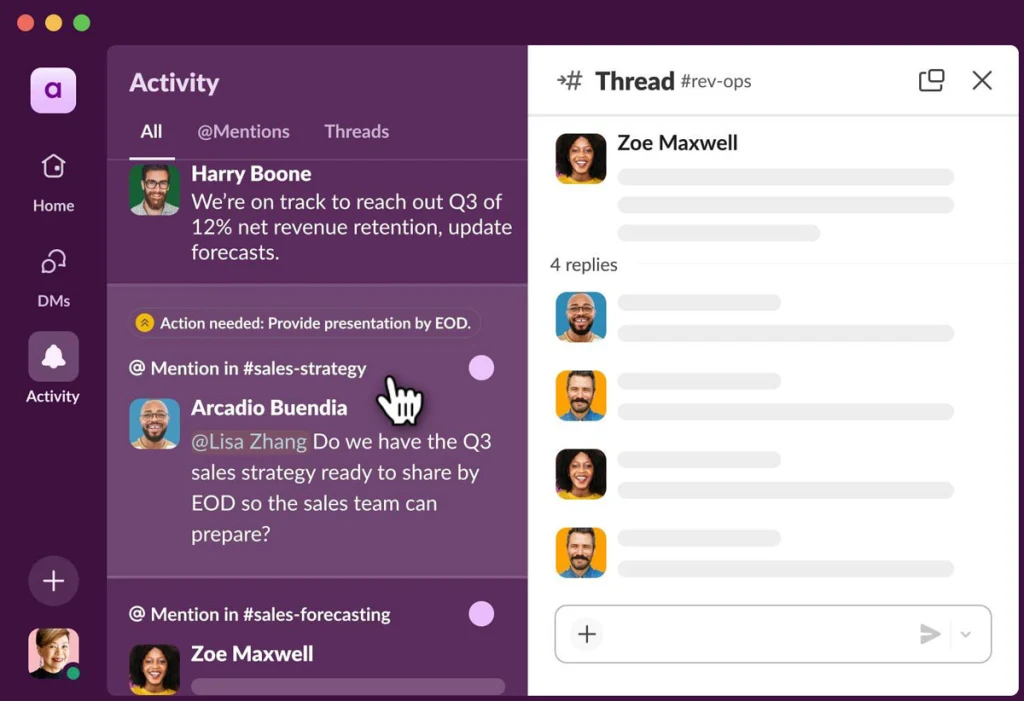
“You search for information, you’re able to very quickly then take action right in the flow of work on that information so you don’t have to go somewhere else,” Dresser says.
Slack’s business customers also trust its security and privacy models. Many already integrate Slack with other apps, including to enable communication with AI bots and agents. Even as new AI features roll out, Slack emphasizes that it won’t use customer data to train new AI models, and that its systems will only access information a user already has permission to see.
Slack, which began introducing AI features about 18 months ago, also ensures that AI responses include citations, such as links to relevant chats. This transparency could give Slack an edge over other AI tools that lack easy access to internal knowledge.
As Dresser says, “We really do think between being trained on your Slack corpus and seeing the citations, it’s been a huge benefit.”
What's Your Reaction?
 Like
0
Like
0
 Dislike
0
Dislike
0
 Love
0
Love
0
 Funny
0
Funny
0
 Angry
0
Angry
0
 Sad
0
Sad
0
 Wow
0
Wow
0


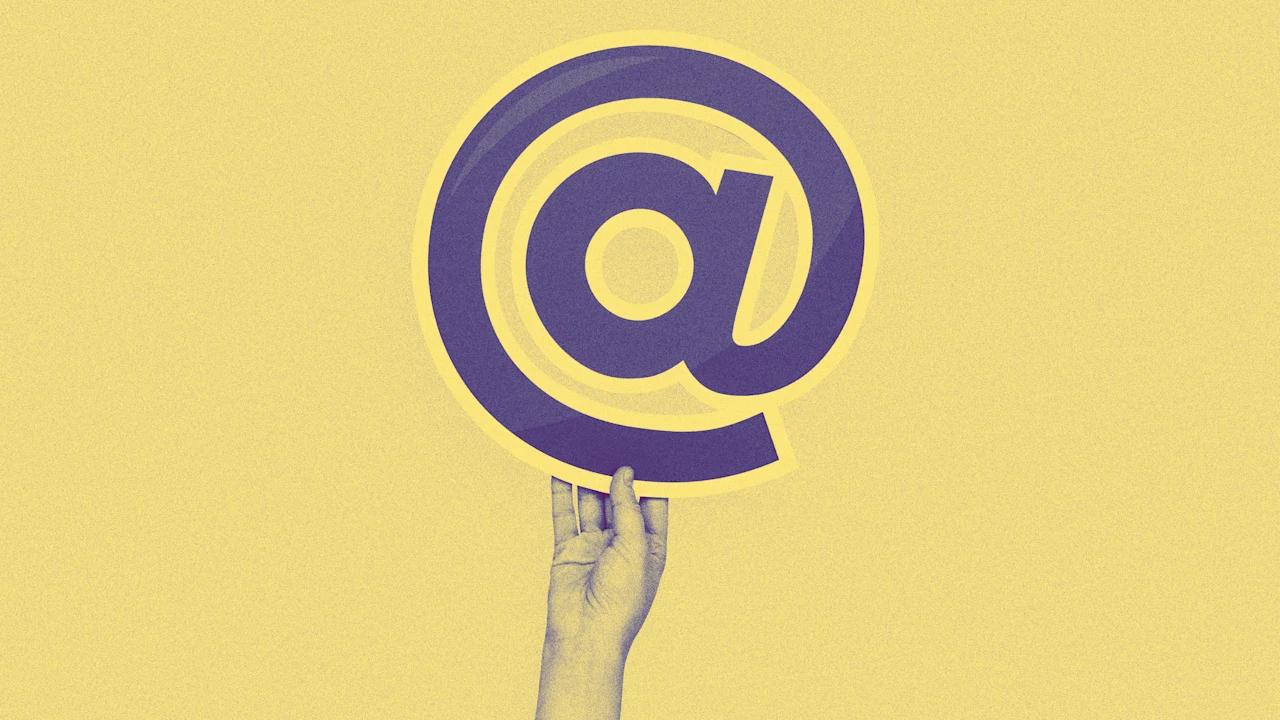






















































![Walter Boys Season 2 Finale Delivers Not One, But Two Cliffhangers — Is [Spoiler] Dead?](https://tvline.com/wp-content/uploads/2025/08/my-life-of-the-wlater-boys-season-2-finale_33d3b0.jpg?#)





































